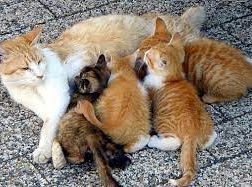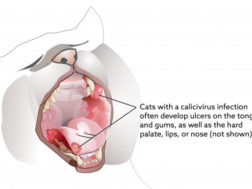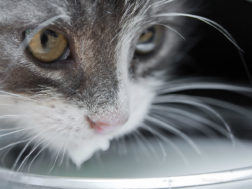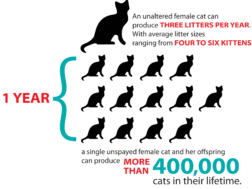The importance of vaccinations to the overall health and longevity of your cat cannot be understated. Cat vaccines are medically and scientifically proven to combat the incubation and transmission of crippling and fatal feline diseases.
Although all cats need vaccinations to help keep them healthy, there is no “one size fits all” approach when it comes to vaccinations, risk factors such as age, overall health and lifestyle should always be taken into account.
Are cat vaccinations required by law in Kenya?
Cat vaccinations are divided into two types:
- Core cat vaccinations are those that protect against especially common and/or particularly dangerous diseases and are recommended for all kittens and adult cats.
- Non-core vaccinations are not necessarily recommended for all cats. Instead, these vaccines are recommended only for those cats that are at high risk of infection. In the case of non-core vaccinations, your cat’s lifestyle must be evaluated to determine the risk of disease and whether the risk associated with vaccination is greater than the risk of your cat getting the disease.
So which shots does your cat need?
Kitten Vaccination Schedule
|
Cat Vaccine
|
Initial Kitten Vaccination (at or under 16 weeks)
|
Initial Adult Cat Vaccination (over 16 weeks)
|
Booster Recommendation
|
Comments
|
|
Rabies
|
Single dose as early as 8 weeks of age, depending on the product. Revaccinate 1 year later
|
2 doses, 12 months apart |
Required annually or every 3 years, depending on vaccine used.
|
Core cat vaccine. Rabies is 100% fatal to cats and humans, with no treatment available. Prevention is key. |
|
Feline Distemper (Panleukopenia) |
As early as 6 weeks, then every 3-4 weeks until 16 weeks of age
|
2 doses, 3-4 weeks apart |
1 dose is given a year after the last dose of the initial series, then every 3 years.
|
Core cat vaccine. Feline distemper is a severe contagious disease that most commonly strikes kittens and can cause death. |
|
Feline Herpesvirus
|
As early as 6 weeks, then every 3-4 weeks until 16 weeks of age
|
2 doses, 3-4 weeks apart |
1 dose is given a year after the last dose of the initial series, then every 3 years.
|
Core cat vaccine. Feline herpesvirus causes feline viral rhinotracheitis (FVR), a very contagious upper respiratory condition. |
|
Calicivirus
|
As early as 6 weeks, then every 3-4 weeks until 16 weeks of age
|
2 doses, 3-4 weeks apart
|
1 dose is given a year after the last dose of the initial series, then every 3 years.
|
Core cat vaccine. A very contagious upper respiratory condition that can cause joint pain, oral ulcerations, fever, and anorexia.
|
|
Feline Leukemia Virus (FeLV)
|
As early as 8 weeks, then 3-4 weeks later
|
2 doses, 3-4 weeks apart
|
Every 2 years for cats at low risk; every year for those at higher risk
|
Non-core cat vaccine. Should test FeLV negative first. Transmitted via cat-to-cat contact. Can cause cancer, immunosuppressant |
|
Bordetella
|
As early as 4 weeks
|
2 doses,1 year apart
|
Annually
|
Non-core cat vaccine. A contagious upper respiratory condition. |
Initial core kitten vaccinations occur at 3-4 week intervals until the cat is 16-20 weeks old and maternal antibody is out of the system.
For adults whose vaccine history is unknown, the initial series consists of two doses of vaccine, 3-4 weeks apart.
Core vaccines should be boosted 1 year after the initial series, thereafter, every 3 years.
Core vaccines recommended for all cats, no matter where they live or under what conditions:
- Feline panleukopenia (FPV)
- Feline herpesvirus-1 (FHV-1)
- Feline calicivirus (FCV cat flu)
- Rabies (core in Kenya due to the presence of Rabies).
FPV Vaccine
Feline panleukopenia, also known as feline parvovirus, is a highly infectious disease with a high mortality rate in kittens. While the disease usually starts with decreased energy and low appetite, it progresses to vomiting and diarrhea. The virus also kills off the white blood cells, leaving the young cats even more susceptible to secondary infections.
Feline herpes virus and feline calicivirus
Vaccines for feline herpes virus (FHV-1) and feline calicivirus (FCV) are always combined, as these two viruses together are the main causes of upper respiratory tract infections in cats (cat flu).
Affected cats typically show sneezing, nasal discharge, conjunctivitis, eye discharge, and mouth ulcers. Clinical signs vary from mild to extremely severe, and occasionally other complications may develop including viral pneumonia. With FHV-1, even after the initial signs subside, most cats will remain permanently infected with the virus and some go on to develop recurrent eye infections or other signs.
The viruses are often transmitted by direct or close contact between cats (eg, in sneezed droplets), but they may also survive for short periods in the environment.
Both of these viruses are ubiquitous in cat populations, and because infection is so common, and can often be quite severe (especially in younger cats), vaccination is considered important for all cats. Although vaccination does not always prevent infection with these viruses, it will help greatly in reducing the severity of disease if a vaccinated cat does become infected.
Rabies
Rabies is a killer disease and although it is more common in dogs (and more commonly passed from dogs to humans than cats to humans) cats can be infected and can be a source of human infection.
For these reasons, it is recommended that all cats should be vaccinated against this disease.























